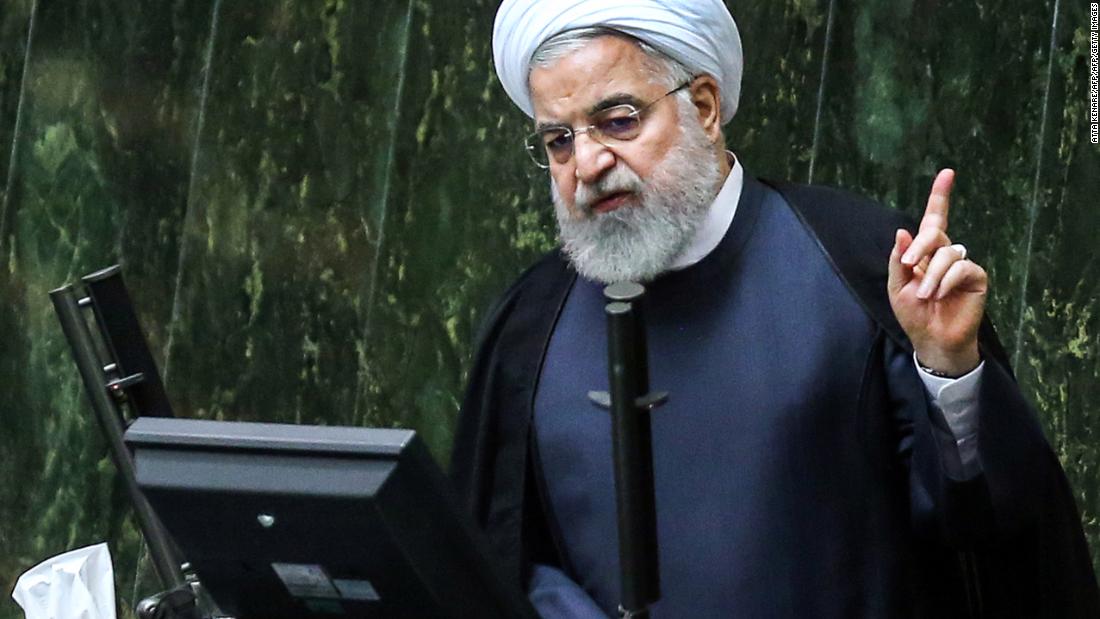
At a cabinet meeting televised Wednesday, Rouhani said the ball is “now in US court.”
“If Washington returns to the 2015 nuclear deal with Iran, we will also fully honor our obligations under the pact,” he said, referring to Trump, adding that “the era of a tyrant has come to an end and today is the last. day of his ominous reign. ”
With Biden – who was a member of the Obama administration that negotiated the original deal – takes office on Thursday, hopes of a rapprochement are high.
At Wednesday’s rally, Rouhani denounced Trump, saying his four years in office “have borne no fruit other than injustice and corruption and caused trouble for his own people and the world.”
What was in the nuclear deal?
The deal, struck in Vienna after two years of intense talks led by the Obama administration, was signed by Iran and six other countries in 2015.
Under the deal, the Iranian government agreed to three key things: reduce the number of centrifuges in the country by two-thirds, reduce the supply of enriched uranium and limit ongoing enrichment to 3.67%, an amount sufficient for energy supply , but not enough to build an atomic bomb.
In addition, Iran had to restrict uranium research and development and grant inspectors from the International Atomic Energy Agency (IAEA) certain access to its nuclear facilities.
In exchange for compliance, all nuclear-related sanctions against Iran were lifted in January 2016, reconnecting the country’s stagnant economy with international markets.
Biden’s move
“I will provide Tehran with a credible way back to diplomacy,” the then-candidate wrote in September. “If Iran strictly adheres to the nuclear deal again, the United States would rejoin the deal as a starting point for further negotiations.”
CNN’s Steve George, Ramin Mostaghim and Mostafa Salem contributed to the reporting.